Folk Games During Tet Holidays
In rural areas, Tet remains a festive holiday celebrated with games, folk singing, and communal feasts. Here are some of the most popular traditional games enjoyed during the Tet holiday in 2025.
Danh Du
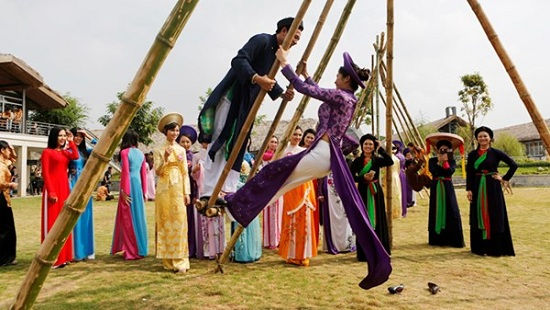 Photo @congly.vn
Photo @congly.vn
Danh Du (Swinging) is a traditional and exciting game held during Tet. Tall poles are placed parallel on the ground, and swings are tied to these poles. Participants, in pairs (which can be a man and a woman or two women), compete to swing as high as possible, aiming to take first place. The prizes are typically modest, such as a bag of rice or some traditional cakes and fruits, but winning in front of the entire village is considered a significant honor.
Leo Cot Mo
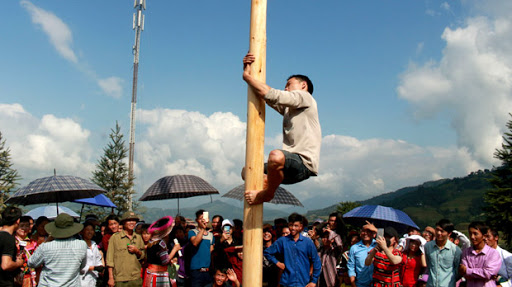 Photo @baohagiang.vn
Photo @baohagiang.vn
Leo Cot Mo (Slip Pole Climb) is a challenging and daring game meant for men, due to the risks involved. A series of tall poles (usually between 5 and 10) are securely placed on the ground. The poles' surfaces are made slick with a slippery substance (often animal fat) to increase difficulty. Atop each pole, a bag wrapped in red silk is attached. Participants strive to climb the poles as quickly as possible to grab the bag, with the first to reach it declared the winner.
Hat bai choi
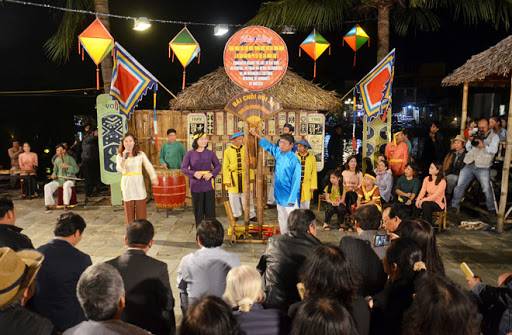 Photo @cand.vn
Photo @cand.vn
Hat Bai Choi (Tend Card Singing) is a well-loved traditional game in central Vietnam during Tet. The game features 11 tents: one main tent where the referees are located and five tents on each side. It begins when the referee randomly selects a card from a set of 33. The referee then sings a riddle connected to the card, and participants in the adjacent tents must guess the name. The first tent to correctly answer earns the card, and a tent that collects three cards achieves victory, prompting a traditional musical performance to celebrate.
Dau Vat
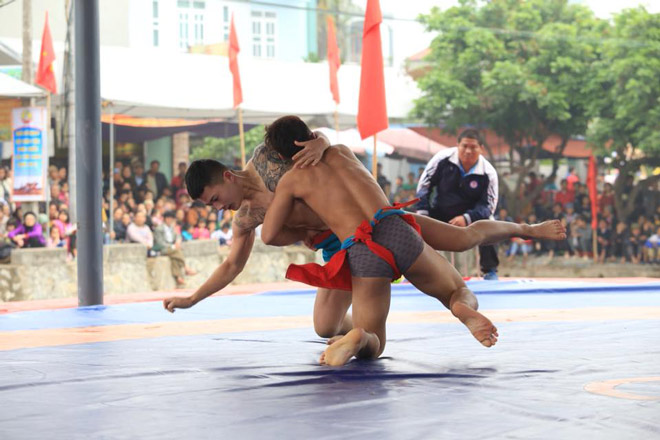 Photo @24h.com.vn
Photo @24h.com.vn
Dau Vat (Wrestling) occurs throughout the year, but the largest and most notable festival happens during Tet. Unlike American wrestling, Vietnamese rules prohibit striking or kicking the opponent. Instead, participants can grapple, push, and lift one another. To win, a competitor must pin their opponent's back to the ground or lift them off the ground. Wrestling matches are typically divided by weight class, and victories through lifting are rare. A distinctive element of Vietnamese wrestling is the accompaniment of energetic drumming during matches.
Co Nguoi
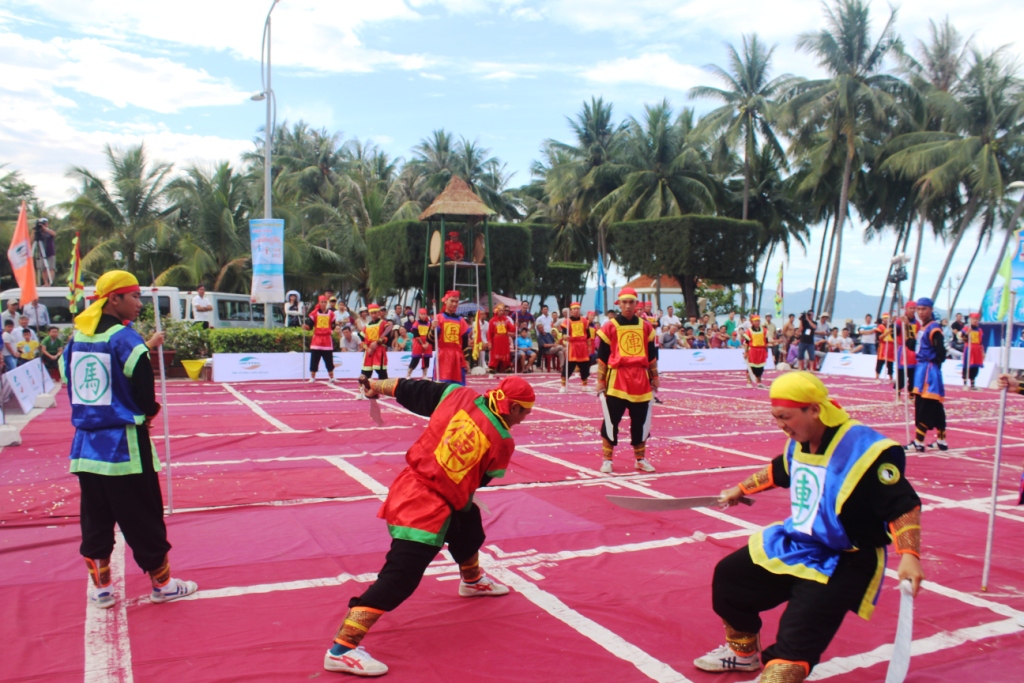 Photo @laodong.vn
Photo @laodong.vn
Co Nguoi (Human Chess) is a unique variant of Chinese chess and ranks as the second most popular board game globally, following Western chess. This enthralling event is held during Tet due to the high costs associated with preparation. The rules mirror those of standard Chinese chess, but the game board is expanded to a large outdoor area with human players representing the pieces. Each participant dresses according to their assigned role: the General wears a long coat and steel helmet, the Advisor styles as an ancient officer, while others don costumes representing their respective pieces. The game is led by a Commander who uses a flag to guide their team in a performance that mirrors the movements of traditional chess. In a more budget-friendly variant, players hold up tables with the name of each piece instead of donning elaborate costumes.
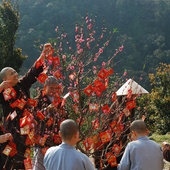
Visiting Pagodas On New Year Days
Together with the festive atmosphere Tet brings to Vietnam every year, the event also the best time of the year for Vietnamese to show their religious belief and traditional custom. Among them, visiting pagodas on the first days of the year has long been a lofty tradition.
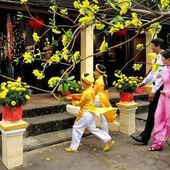
Do and Don't When Xong Dat
Tet Nguyen Dan- the biggest festival of the year- plays an extremely essential role in Vietnamese’s beliefs and culture. Among many complicated religious rituals performed in this occasion, “xong dat” (first visit to a home in a year) is believed to decide the fortune of the host for the whole year.

Origin Of Vietnam Tradition Xông đất
Year by year, Tết holiday has repeated in the role of the most fundamental and also biggest festival of a year to Vietnamese, from Kinh people to ethnic communities. In this crucial event, Xông đất (first visit to a home in a year) appears to be one of the indispensable rites.











